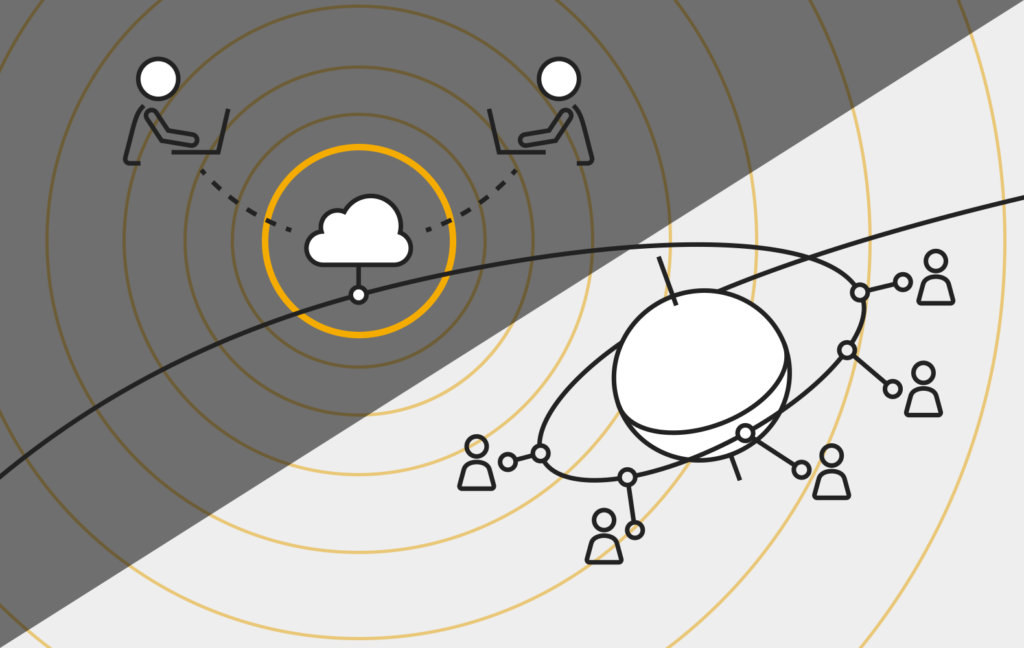20 June 2022 – After the COVID-19 pandemic struck, EMBO joined forces with EMBC Associate Member States and co-operation partners to deliver an array of online seminars. Their goal was to provide researchers with the opportunity to enhance key skills and to spread the word about opportunities provided by the EMBO Programmes.
Strengthening skills
In May 2021, travel restrictions were still in place across much of the globe. María Paulina Correa, an associate professor of social epidemiology at the University of Chile, spontaneously decided to take part in an EMBO online seminar in grant writing – organized locally by the Chilean Societies for Neuroscience, Biochemistry & Molecular Biology, and Cell Biology.
“I did not know what to expect at first, but my first experience of an online workshop was very positive,” recalls Correa, who is based in Santiago. “I learned a lot and had the chance to interact with experts from all over the world. The trainers took me out of my comfort zone, helping me to refine and clarify my ideas and present them in an attractive way.”
Correa promptly signed up for three more sessions, taking part in open sessions alongside an average of 50 other researchers and more personalized sessions with 10 to 15 participants. She was in the middle of applying for a major grant at the time, and credits skills she learned for helping to strengthen her successful application and for inspiring side projects such as podcasts, videos, and a popular science article co-authored with EMBO Associate Member Christian González-Billault.
“One of our goals was to provide better training in soft skills. These events have provided hundreds of scientists with first-rate training, free of charge,” says González-Billault, professor in cell biology at the University of Chile, and a local organizer of the webinars.
“Chile is a long way from Europe, and travel restrictions during the pandemic have made this feel even more so. The webinars have provided an opportunity to democratize science, and essentially close gaps such as distance, language, and other communication barriers.”
Confidence and clarity
Sunil Laxman, an EMBO Global Investigator at the Institute for Stem Cell Science and Regenerative Medicine in Bangalore, India, says that it is important to recognize that effective communication is a learned skill.
“Being able to communicate science in a clear and engaging way is not some mystical natural talent: it is a skill that can be learned and improved,” says Laxman, who was a mentor during an oral communication webinar.
The event formed part of a new EMBO | India Bioscience series that was launched in the wake of the pandemic in 2020. So far, three open seminars have attracted more than 750 participants. Smaller groups have taken part in more personalized training.
“In our hands-on session, participants were required to prepare poster presentations for different audiences, including a ten-minute talk, a two-minute elevator pitch and a 30 second flashtalk,” Laxman explains. “Shorter presentations are often the hardest. But by the end of the seminars, it was clear attendees were embracing our key points, which included clarity, messaging, identifying with audiences, and practice.”
Building connections
EMBO has also co-developed online courses with Taiwan’s national academy, Academia Sinica. Yen-Ping Hsueh, an EMBO Young Investigator, was a host and a moderator on seminars in March and June 2021.
“It was a wonderful experience,” says Hsueh, who helped guide participants and give them personalized feedback. “Skills such as writing papers or grants are not typically part of scientific training. But they are invaluable across all career stages.”
A total of 18 young principal investigators took part in training on grant writing, while more than 100 PhD students of the Taiwan International Graduate Program took part in training on scientific writing. Participants in a more personalized session also received constructive feedback from trainers and peers.
“Lecturers provided a terrific combination of skilled teaching, interesting assignments, and individual guidance,” she says. “I hope that the seminar series will become a regular fixture in our academic calendar.”
New opportunities
Working together with Singapore’s Agency for Science, Technology, and Research (A*STAR), EMBO also coordinated three informational webinars aimed at researchers in the country in early 2022.
“EMBO Programmes offer many opportunities for life scientists to collaborate and advance their career in science and research,” says Isabelle Tan, who works for A*STAR’s people development and planning office. “Participants were able to engage with scientists based in Singapore who have taken part in EMBO Programmes and gain valuable tips on the application and interview processes. The webinars were a really relatable way of reaching out to our research community.”
Each webinar attracted 35 to 40 participants. They provided first-hand insights into the EMBO Fellowship Programme, the Young Investigator Network, and its courses and workshops.
“We have seen an increase in interest in the EMBO Programmes amongst our community as a result of these webinars,” Tan says.



